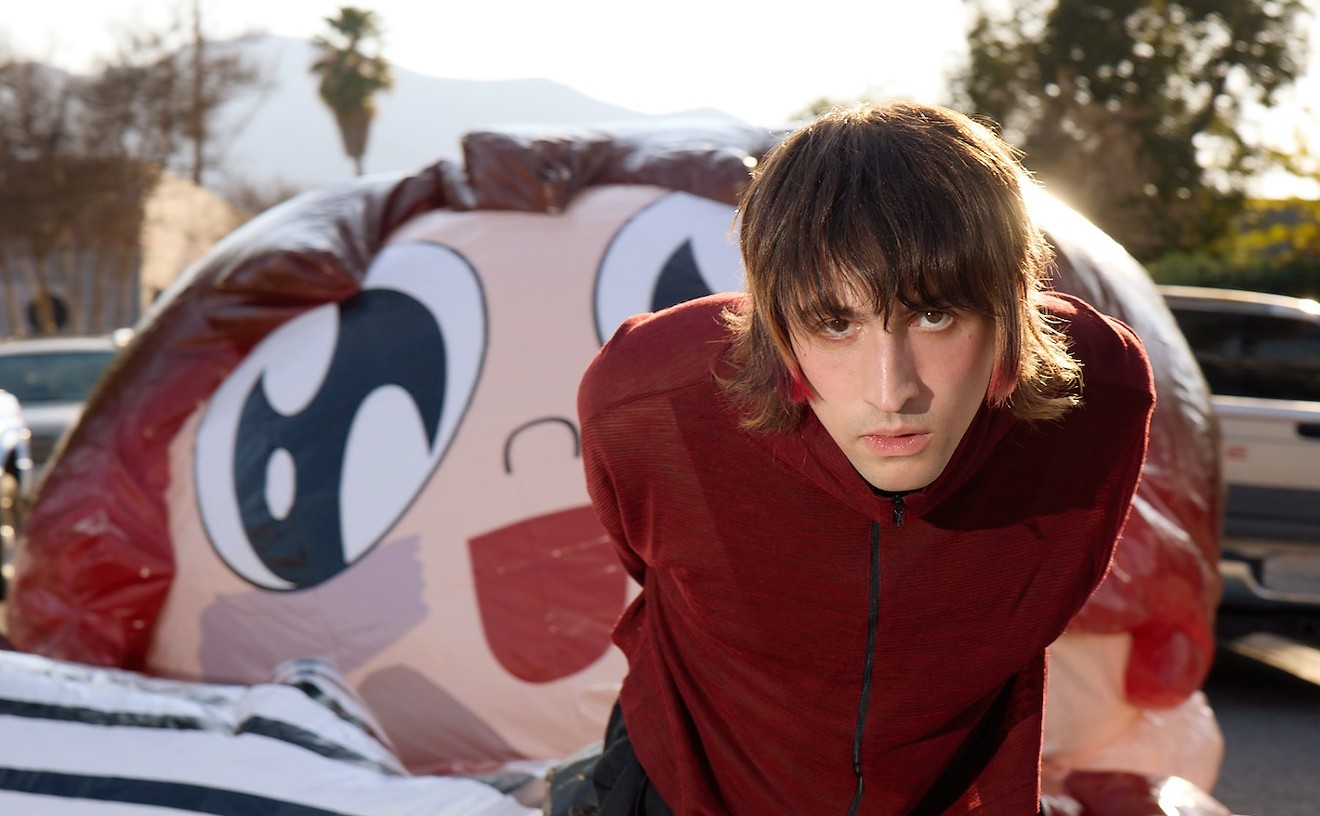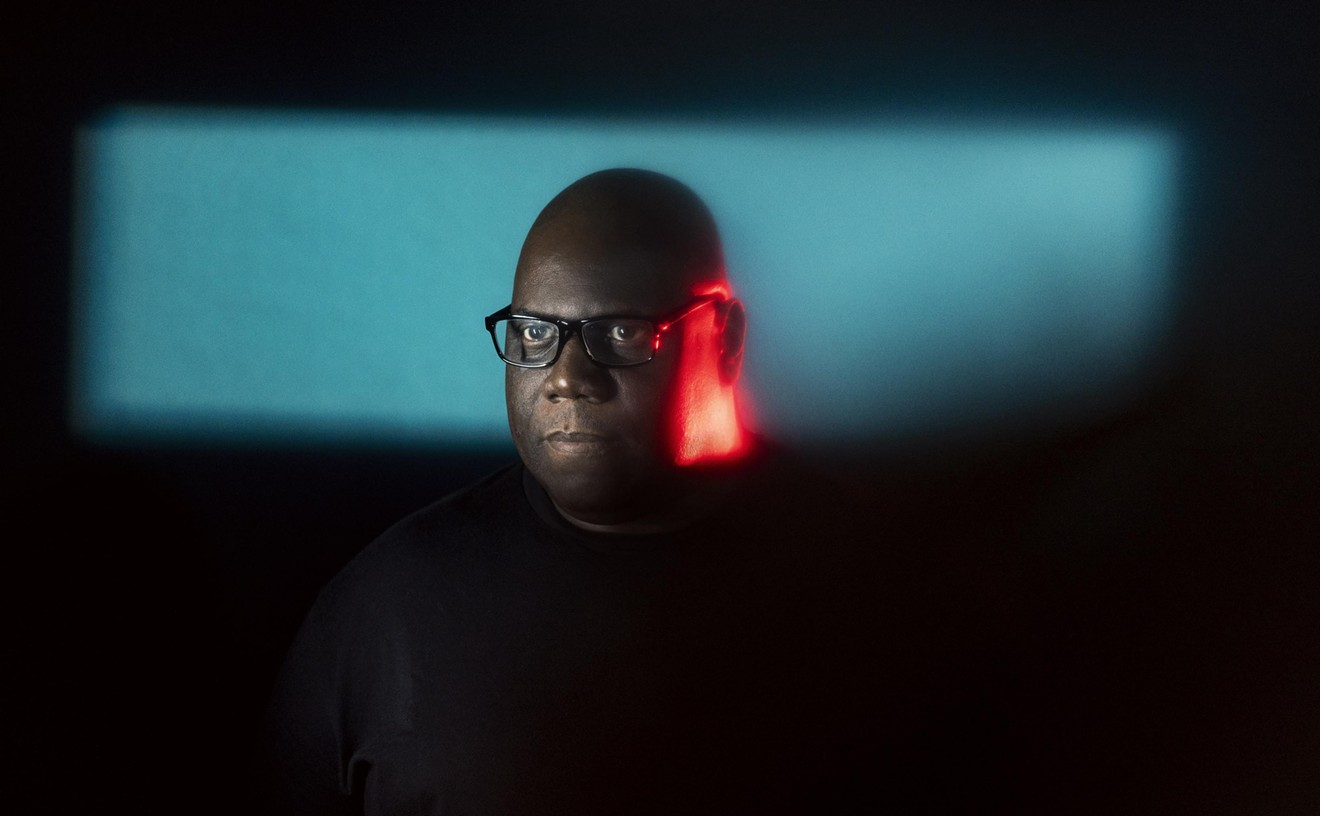Then along came Puya, bringing Puerto Rican thrash metal with sabor. The band's latest release, Union, shifts from sweet-voiced Spanish soneos to diabolical English screams and throws down speed guitar and soul-splitting bass shot through with timbales and conga. Hardcore, con coco.
With Union Puya does not simply unite Puerto Rico's cocolos and rockeros. The disc foists metal onto the Latin market at large, scoring the highest debut ever on the Billboard Latin charts for a hard-rock band while introducing Latin flavor to the metal masses by hitting number one on Radio & Records magazine's commercial rock specialty play chart for English-language radio all across the United States. Released on MCA rather than through a Latin music label and produced by rock gods GGGarth Richardson (Rage Against the Machine, Kittie, Mudvayne) and Mudrock (Godsmack, Powerman 5000), Union picks up where Santana left off, creating a bona fide genre of Latin-tinged rock.
But if Puya is conquering the U.S. mainland, it wants the U.S. Navy out of the tiny island of Vieques, off the Puerto Rican coast. "The bombing is destroying the ecology and putting life at risk," says frontman Sergio Curbelo, referring to the use of the island for military exercises involving depleted uranium and napalm bombs that have sparked an ongoing civil-disobedience campaign. "There was already one casualty," Curbelo continues. "There's no need for more."
The members of Puya take every opportunity to raise awareness about the occupation of Vieques, from tour dates to the Billboard Latin Music Awards ceremony, where they were honored for their first major release, Fundamental, to their current offering, which features photographs of the troubled island on the cover and the song "Pa' Ti, Pa' Mi" -- a Boricua metal version of "This Land Is Your Land."
Before they were activists or even fusionists, Curbelo and his bandmates -- guitarist Ramon Ortiz, drummer Eduardo Paniagua, and bass player Harold Hopkins -- basically were metalheads growing up in San Juan, covering their favorite bands Black Sabbath and Iron Maiden in a group named Whisker Biscuit. In 1993 they moved to South Florida, where their sound grew heavier, even as they started adding more and more tropical touches to the mix. Curbelo, who lives with his family in Cutler Ridge, shouts out "To the 305" over the phone, while in the background the rest of the band members cheer over a PlayStation game during a stop on their tour with Fear Factory.
Curbelo credits the Puya's increased interest in Latin rhythms to a growing sense of Puerto Rican identity after moving away from the island, but he attributes the heavier sound to the group's new home. "We wouldn't be doing what we're doing if we hadn't come here," he says of the influence of Fort Lauderdale heavies Marilyn Manson and Collapsing Lung, "We got into all that [speed and thrash metal and heavy stuff] not to compete but to hang."
Curbelo believes throwing themselves into South Florida's ever-beleaguered hardcore scene made Puya stronger. "The fact that it's really hard to survive makes for great music," he maintains. "Heavy music has a lot to do with aggression and release. That's music where people beat the crap out of each other, but you get pent-up energy out in a way that's a fountain of creativity. If we were all complacent, we'd be singing about our cars and our clothes and our houses. We can leave that to the rappers."
Performing at the Billboard Latin Music Conference in 1996, Puya's creative release caught the attention of producer Bob Ezren (Pink Floyd, Elvis Costello, Kiss), who invited the band out to Los Angeles and hooked them up with Latin alternative powerhouse Gustavo Santaolalla. After that came invitations to tour with Sepultura and Hatebreed and then, its biggest coup, Ozzfest. "That's better than any money and anything else in the world," swoons the singer. "It goes beyond record sales. Now we're playing the ZetaFest even though Zeta wouldn't play our music before. Now we're actually starting to get some respect."
Curbelo gushes over the success his peers Endo and Nonpoint have earned. "I'm so proud of those guys," he says. "We're into gritty, down-to-earth, real in-your-face-type shit in an area where club and rap music is what flourished." As Puya stakes its own rock claim, Curbelo hopes to help out the new metal bands now struggling on the scene, waxing enthusiastic about a demo he received from Hialeah Latincore outfit Wasted Circle. Fans since their guitarist won a copy of the 1995 Puya on Noiz Boiz Records in a Zeta Local Night contest, the 19- to 22-year-olds spotted Curbelo hanging around after the Bonsai 2001 show. "It's Serg!" yelled Wasted Circle's singer. "Oh my God, dude, you guys are one of our major influences!"










